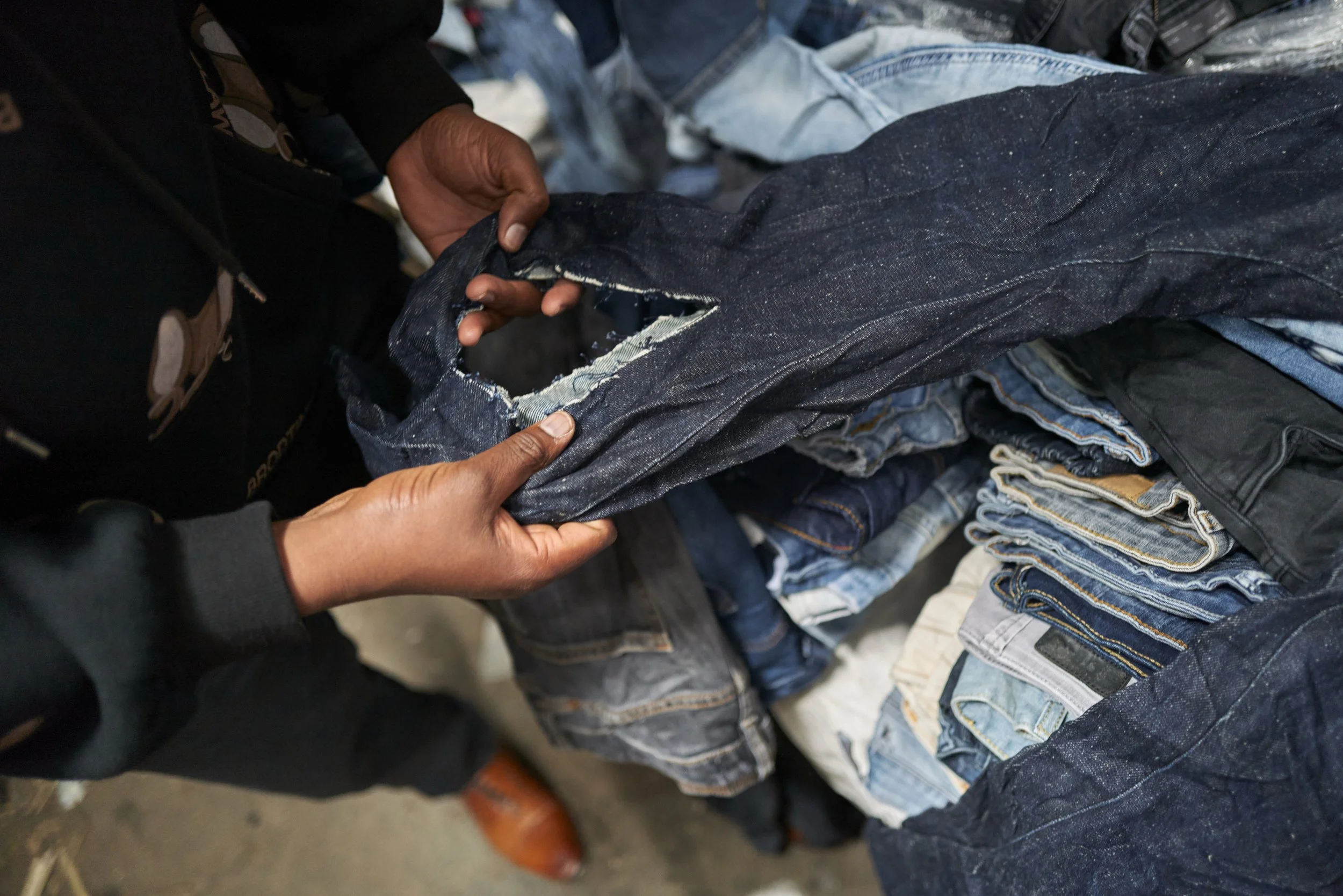Mitumba
Mitumba is more than just a local business in Kenya—it’s a lifeline. These clothes, imported primarily from Western countries, have created a booming industry that sustains countless livelihoods across the country. Traders and small-scale vendors rely on these imports, weaving a vibrant, resilient economy around this global flow of used clothing.
Kenya’s Mitumba trade pulse is Gikomba Market, Nairobi’s largest secondhand clothing hub. This sprawling marketplace is a chaotic symphony of sounds, sights, and smells, where traders work tirelessly to sort and sell vast quantities of clothing. Trucks unload bales of clothes daily, which traders open with hopeful anticipation.
Initially, Mitumba provided high-quality, gently used clothing at low prices, building a culture of resourcefulness. Today, the industry is one of Africa's largest second-hand clothing markets, employing thousands directly in the trade and indirectly through services such as transportation and tailoring.
However, the rise of fast fashion and mass-produced clothing has led to a troubling shift in the quality of mitumba. A significant portion of the clothing that now arrives in Kenya is of poor quality, often cheaply made and unsuitable for resale. The once-promising industry has become flooded with little more than disposable garments. Traders are increasingly forced to discard unsellable items, adding to growing waste piles that quickly outstrip demand.
The environmental impact of poor-quality mitumba is devastating, with Dandora dumpsite—Nairobi’s largest landfill—bearing the brunt. Dandora has transformed into a hazardous dumping ground where mountains of textile waste accumulate daily, often left to decompose slowly. This waste is synthetic, non-biodegradable, and chemically treated, creating a toxic legacy for the soil, air, and water. The dumpsite has become a dangerous workplace for informal waste-pickers who, driven by necessity, sift through the refuse for items of value but are exposed to significant health risks.
Mitumba is a Swahili term meaning “bundles”, used to refer to plastic-wrapped packages of used clothing.
Mitumba is also a business: local African wholesalers purchase bales of tropical mix from Western countries and sell them in these developing world markets.













